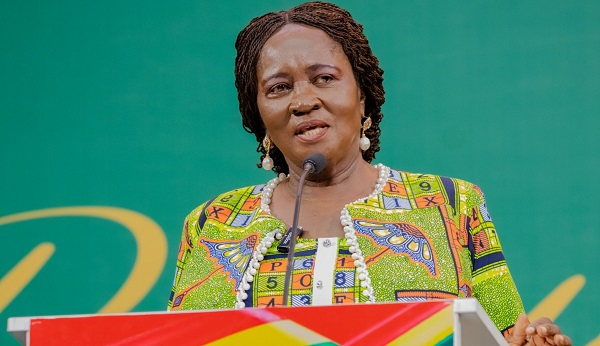OTTAWA — Like a giant star, Donald Trump is warping the federal election with the gravitational pull of his trade war. Under the influence of his tariffs and general bellicosity, the battle for votes is now unfolding on two major fronts of contention: how to confront the immediate threats of the U.S.
president’s economic disruption ; and how Canada must change so it is invulnerable to future American predation. As the April 28 election campaign hits the two-week mark on Sunday, all major parties have tuned their electoral pitches to the Trump-trade frequency. That became apparent in recent days, as Trump imposed sweeping tariffs on 185 countries, slapped Canada with a third round of import duties — this time on the auto sector — and once again took centre stage in a federal election playing out amongst the reverberations of an American president dead-set on twisting global relations to his own advantage.

“We are facing the biggest crisis of our lifetimes,” Liberal Leader Mark Carney told reporters in Oakville on Saturday. “We must respond with purpose and with force,” he said. “Above all, we will build a new Canadian economy.
” Out west, in the border community of Osoyoos, B.C., Conservative Leader Pierre Poilievre advanced his argument that the U.
S. president wants Carney to win the election, because the Liberals — with policies the Conservatives blame for dampening investment and blocking major development projects — are playing into Trump’s ravening hands. “This, of course, has been great news for President Trump, who wants to steal our jobs and opportunities,” Poilievre said.
“That’s why more and more money is moving south — jobs, resources along with it.” On Saturday, the three main national parties rolled out campaign promises on different issues . But all of them wrapped their ideas in the context of Trump’s threats, moulding and justifying their proposals as answers to Canada’s American plight.
In St. John’s, N.L.
, NDP Leader Jagmeet Singh pledged to ensure all Canadians have access to a family doctor within five years. According to the NDP, that means finding another 7,500 doctors by 2030, which the New Democrats would accomplish in part by creating residencies for internationally-trained physicians who already live in Canada. Singh said the NDP would offer provinces a one percentage point increase in federal health transfers if they agree to the family doctor plan.
And he framed the need for his proposal not just as a way to plug a gap in the health-care system, but to protect an aspect of Canadian society that he argued is fundamental to the country’s values — values that are under threat from Trump, who has spoken of erasing the border and annexing Canada as the 51st American state. “People want to protect our values. They want to protect that fact that we take care of each other.
And what represents that to Canadians, the thing that Canadians are most proud of when they talk about how we take care of each other, is health care,” Singh said. “No matter what happens in the south, no matter what threats come to our country, we will always defend our public, universal health care system.” The American spectre was present for the Bloc Québécois, too.
The party’s leader, Yves-François Blanchet, likened the threat of the U.S. drawing Canadian businesses south of the border — part of Trump’s rationale for imposing tariffs — to how Montreal has lost out to Toronto as Canada’s financial capital in recent decades.
“Now Canada is centralizing it’s (political) authority in Ottawa and centralizing its economic authority in Toronto,” he said. “It’s a major threat for Quebec interests.” Poilievre, meanwhile, promised Saturday to slash “red tape” by reducing federal government regulations by 25 per cent.
He said a Conservative government would also ensure the federal government is slashing two regulations for every new regulation it introduces, and to reduce the administrative cost of following regulations by two dollars for every one-dollar increase. He argued these regulations are part of a burdensome bureaucracy that has stifled economic activity and driven investment into the U.S.
And like the NDP’s pitch to protect health care, Poilievre said the Conservative plan to ditch regulations and remove laws he argues have impeded resource development is the answer to reducing reliance on the U.S. and strengthening the Canadian economy.
Taking aim at Carney’s background as the former central banker for Canada and the United Kingdom, Poilievre said “a resume is not a plan. Nor is keeping the same Liberal policies that got us ..
. in this mess in the first place. “A fourth Liberal term will only strengthen the Americans and weaken Canada,” he said.
In Oakville, Carney leaned on that same resume to argue he’s the best person to carry on as prime minister and steer Canada through the U.S. turbulence.
He said his time as the Bank of England governor, when the U.K. broke away from the European Union through Brexit, prepared him for the current crisis.
“I have seen this movie before. I know exactly what’s going to happen,” Carney said. “The Americans are going to get weaker.
We are going to stand by our workers. We are standing by our companies. We are building new trade relationships.
We are going to stay strong and get stronger.” Carney pledged to boost workers in the trades through measures that include providing grants of up to $8,000 for registered apprenticeships, doubling the funding for a union training program to $50 million per year, and expanding tax deductions for workers’ travel expenses. Like Poilievre, he pitched the plan — which overlapped with some previous Conservative pledges — as a way to prepare the Canadian economy for a future with less reliance on the U.
S. Asked whether he is campaigning to win votes on fear of the U.S.
, Carney said his campaign is about building Canada out of the current crisis. “I am not scared of Donald Trump,” Carney said in French. “We will win this war.
” That, in a phrase, and for all parties, is what this campaign is now about. Error! Sorry, there was an error processing your request. There was a problem with the recaptcha.
Please try again. You may unsubscribe at any time. By signing up, you agree to our terms of use and privacy policy .
This site is protected by reCAPTCHA and the Google privacy policy and terms of service apply. Want more of the latest from us? Sign up for more at our newsletter page ..
Politics

Donald Trump’s tariffs and threats have shaped the federal election’s battle for votes. Here’s how

On Saturday, the three main national parties rolled out campaign promises as answers to Canada’s plight with the U.S. president.















